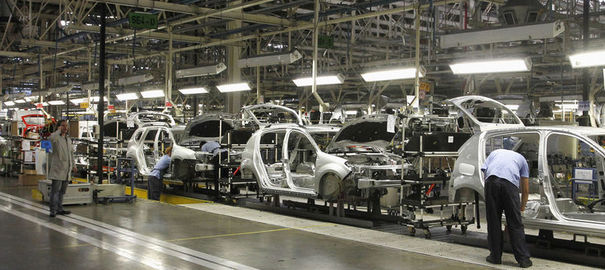Telegraph.co.uk
By Annabel Fenwick Elliott, travel writer
The high-speed service will link Casablanca (pictured) with Tangier Credit: Getty.
Africa’s railway system is about to get a major upgrade with the launch of its fastest ever train.
Engineers in Morocco are testing trains capable of reaching 200mph – the top speed of the Eurostar – slashing journey times between the country’s key economic hubs by almost two thirds.
The 215-mile journey from Casablanca to Tangier via the capital city of Rabat will now take just over two hours, rather than five, when the service launches next summer.
During testing on Monday, one train reached 170 mph along a stretch of track between the northern cities of Kenitra and Tangier, it was revealed.
“This is already the fastest train on the African continent,” announced French Foreign Minister Jean-Yves Le Drian, who was in Morocco to sign a €2 billion (£1.7bn) loan deal between the French Development Agency and Morocco’s national railway operator, the ONCF.
He said the railway, dubbed the LGV and 50 per cent financed by France, was “emblematic of the Franco-Moroccan bilateral relationship”.
The trains will match the Eurostar for speed Credit: getty
According to the latest figures, the project is set to go around 15 per cent over budget, but ONCF head Rabii Lakhlii said the project had still cost “less than €9 million euros per kilometre (£13million per mile), compared to a European standard of €20 million euros per kilometre”.
The route, first mapped out in 2005, was made more complex by hilly terrain and strong winds and required the building of several viaducts including some more than two miles long.
The high-speed trains will be supplied by French conglomerate Alstom, 14 in total, each capable of carrying 533 passengers.
What does this mean for tourists?
The ONCF expects the line to attract six million travellers within its first three years, with other expansions in the North African country planned for the next three decades.
27 reasons why trains are better than planes
It currently costs in the region of 136-261 Moroccan Dirham (£11-£21) to take the line all the way from Casablanca to Tangier on the ONCF’s existing service, and Mr Lakhlii said that tickets will cost about 30 per cent more when the LGV rolls out.
Why has it sparked controversy?
Moroccan leaders have heralded the project as a key step in modernising the country’s infrastructure.
But opponents say the project, which has been under construction for six years, unfairly favoured French companies when handing out contracts.
Leading the way: China’s bullet train, the fastest in the world 00:43
Critics have also argued that the money, the total cost of which is around €2 billion, could have been better spent in a country where many live in poverty.
Morocco – which gained its independance from France in 1956 – has a gross national income of just 26,800MAD (£2,159) per capita, according to the World Bank.
Supporters argue, however, that if the new high-speed railway succeeds in attracting more tourists, it will boost what is already one of the most lucrative sectors in the Moroccan economy.





